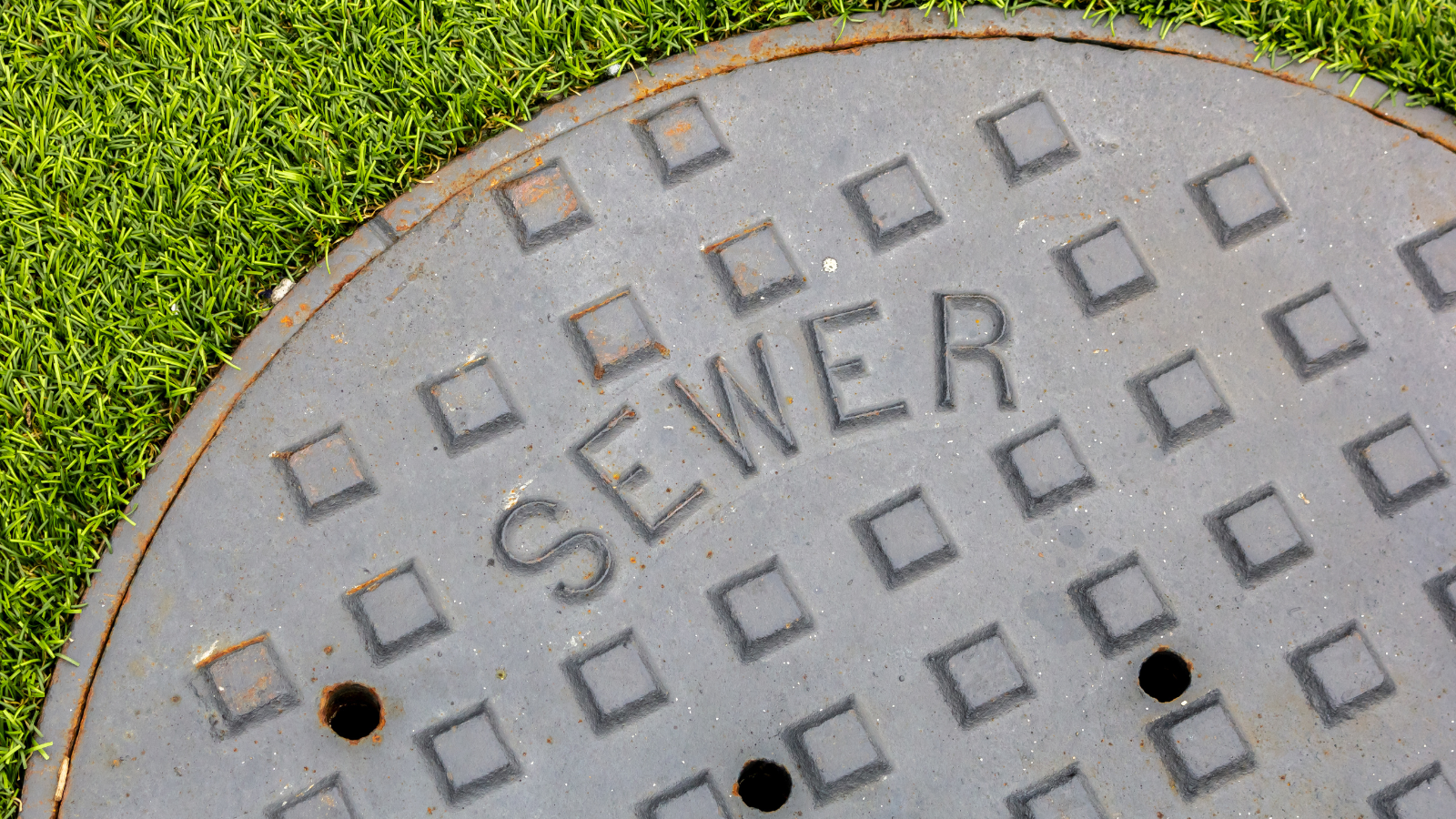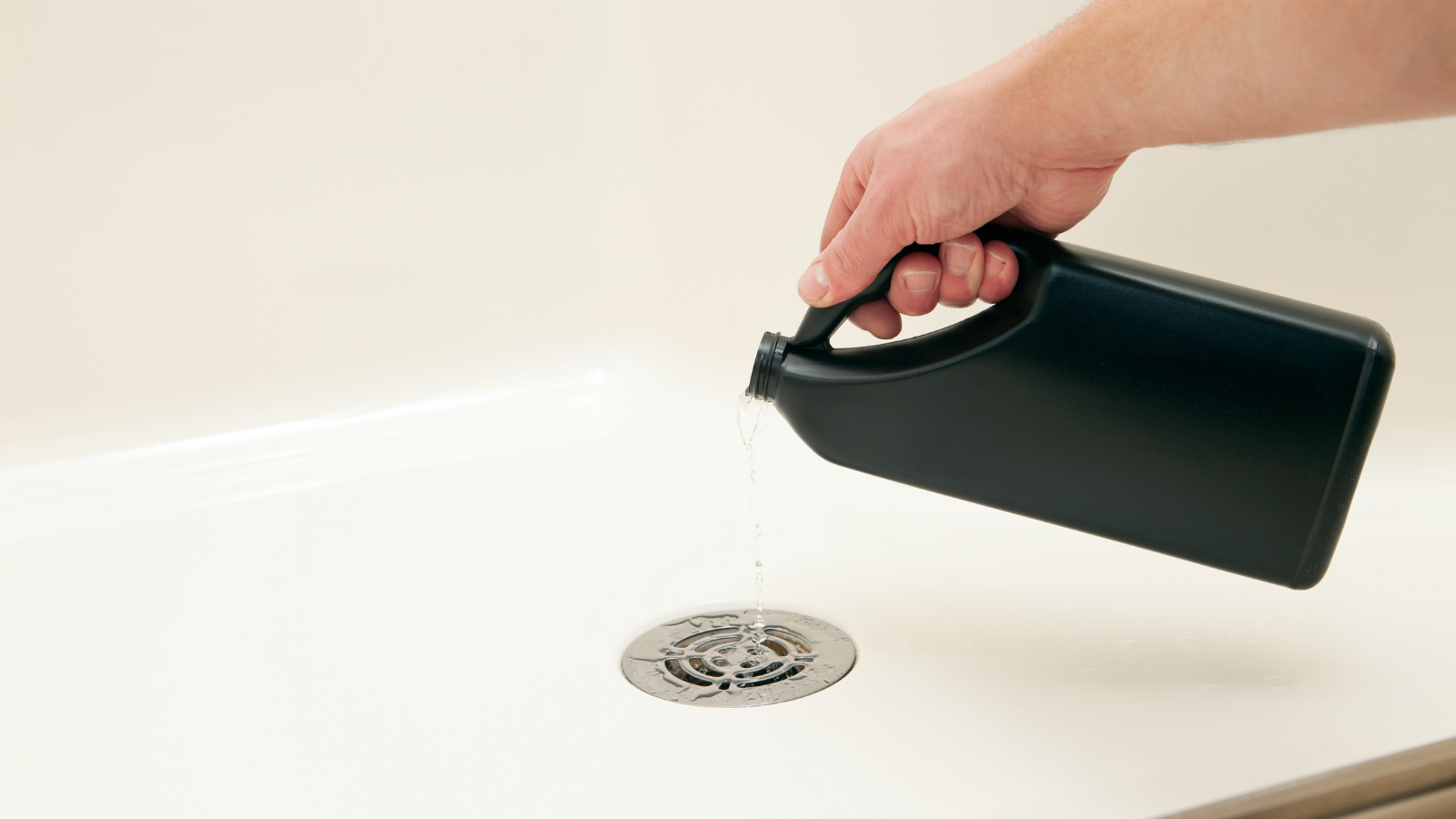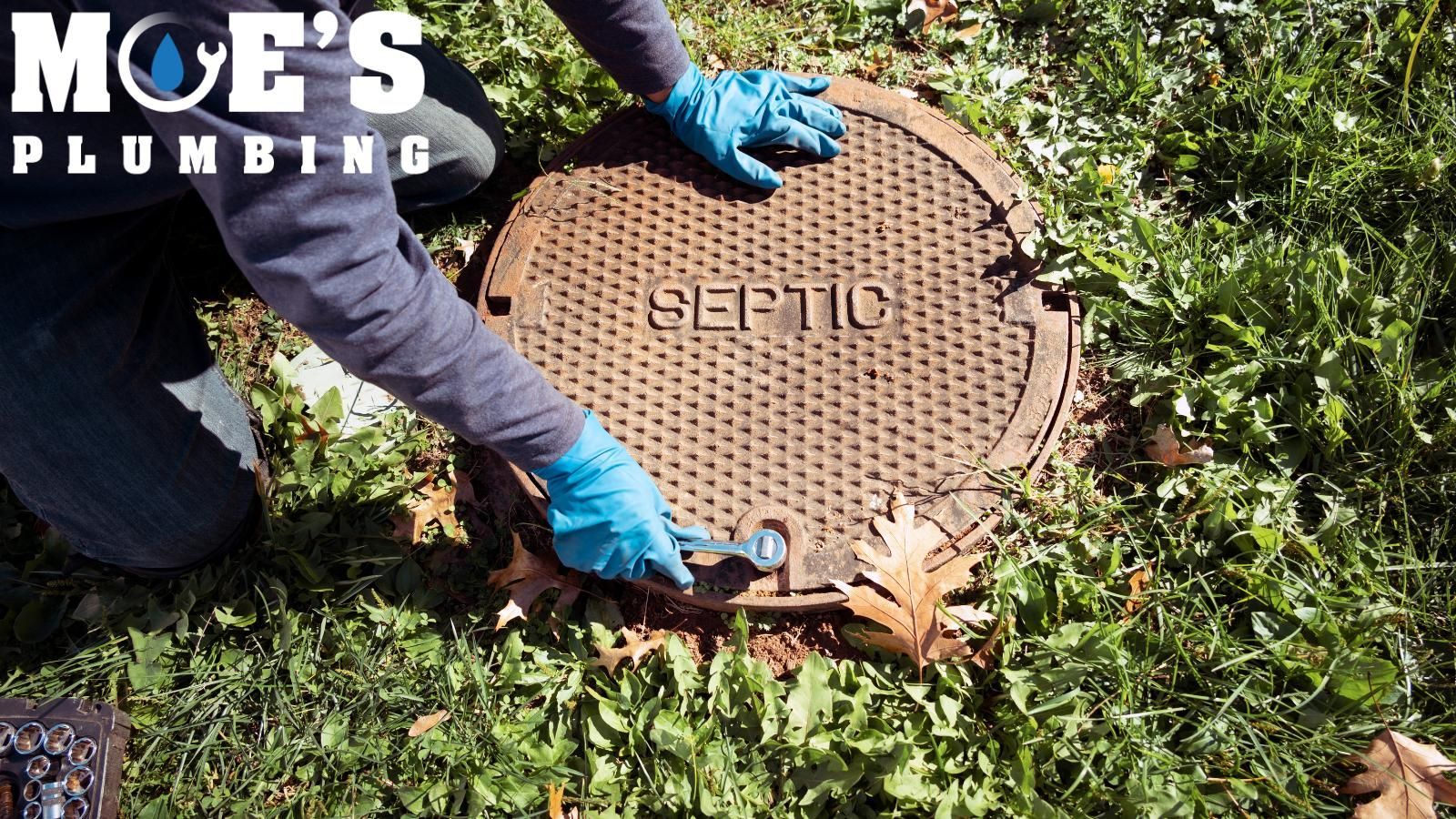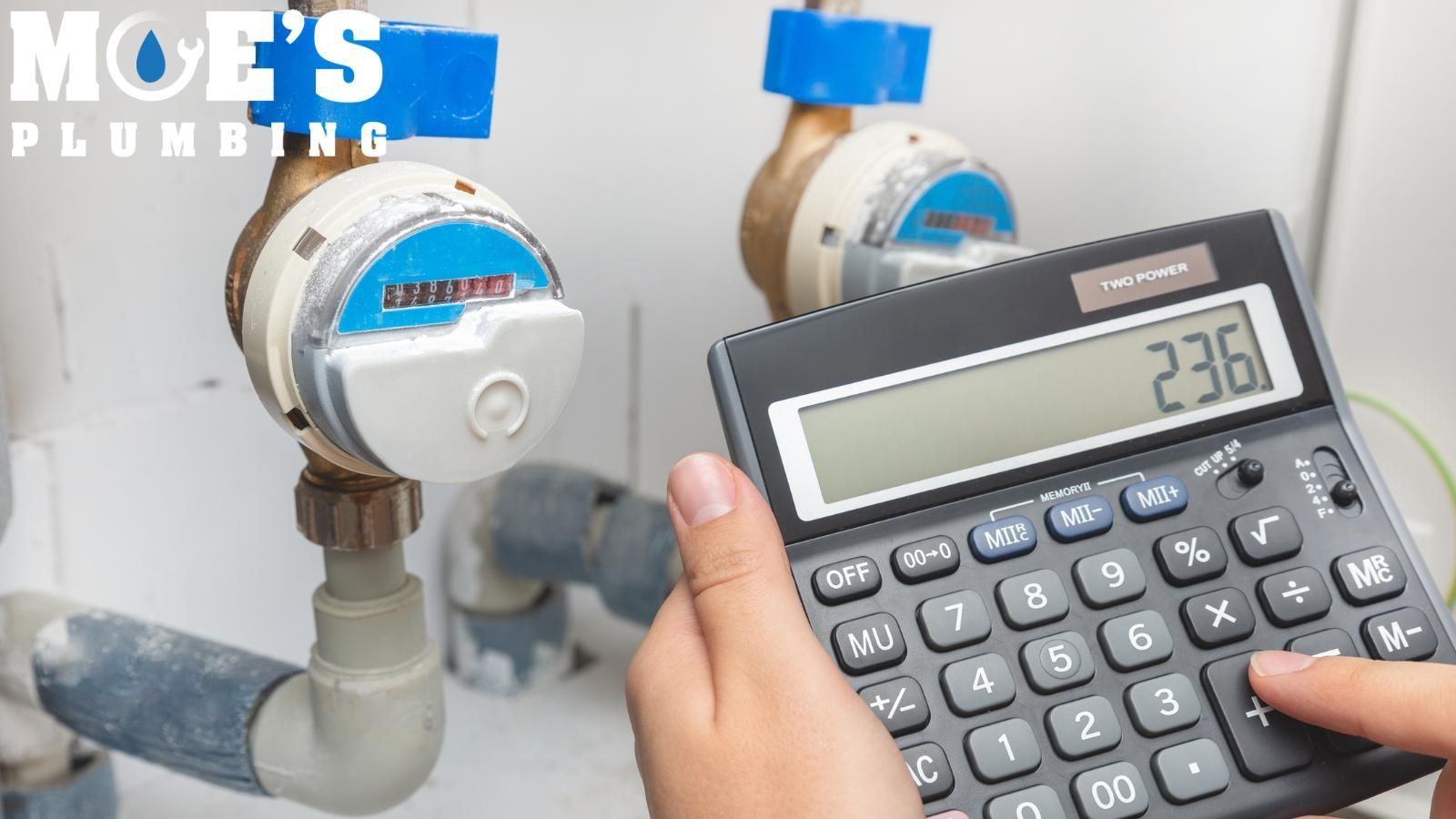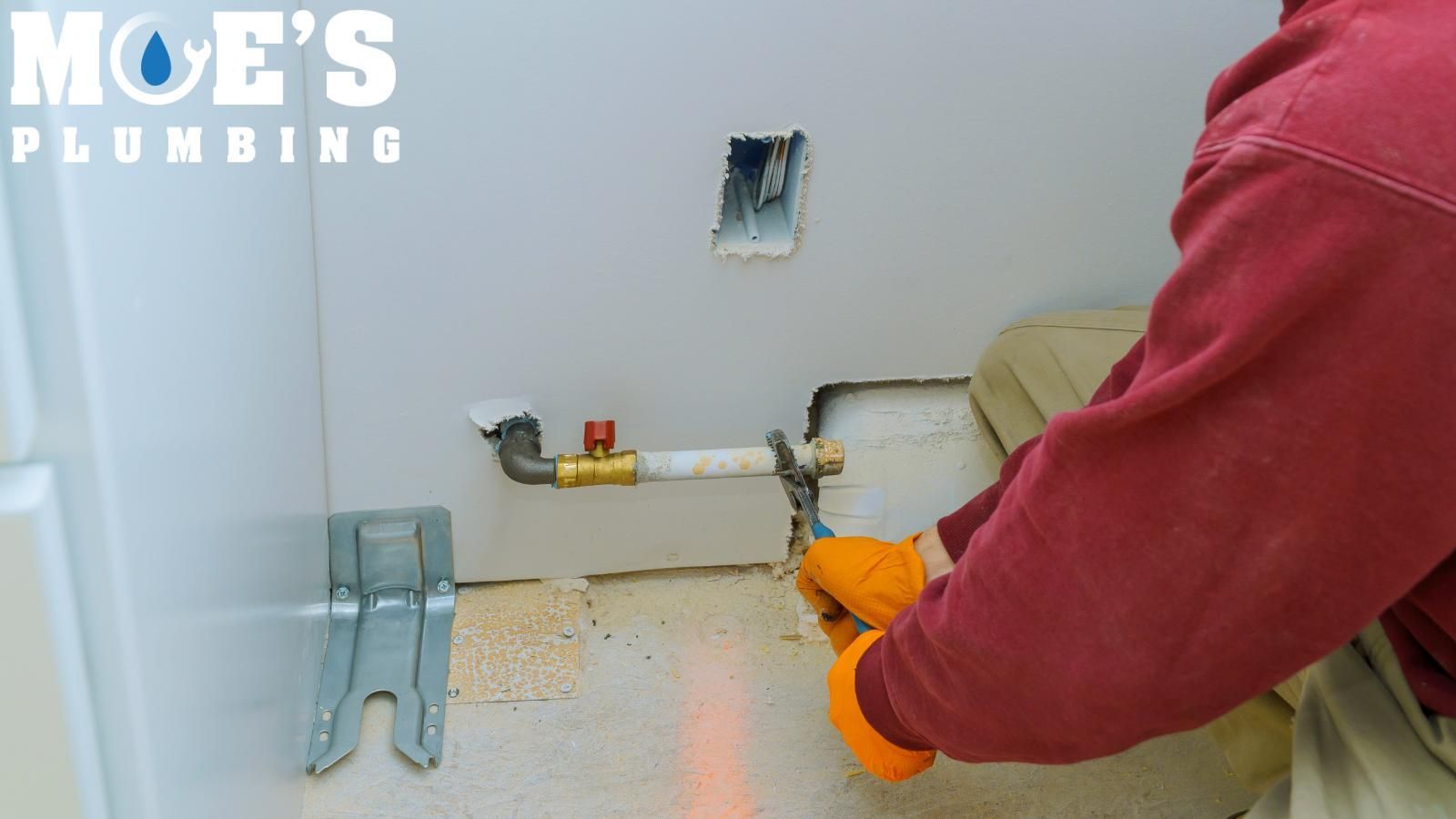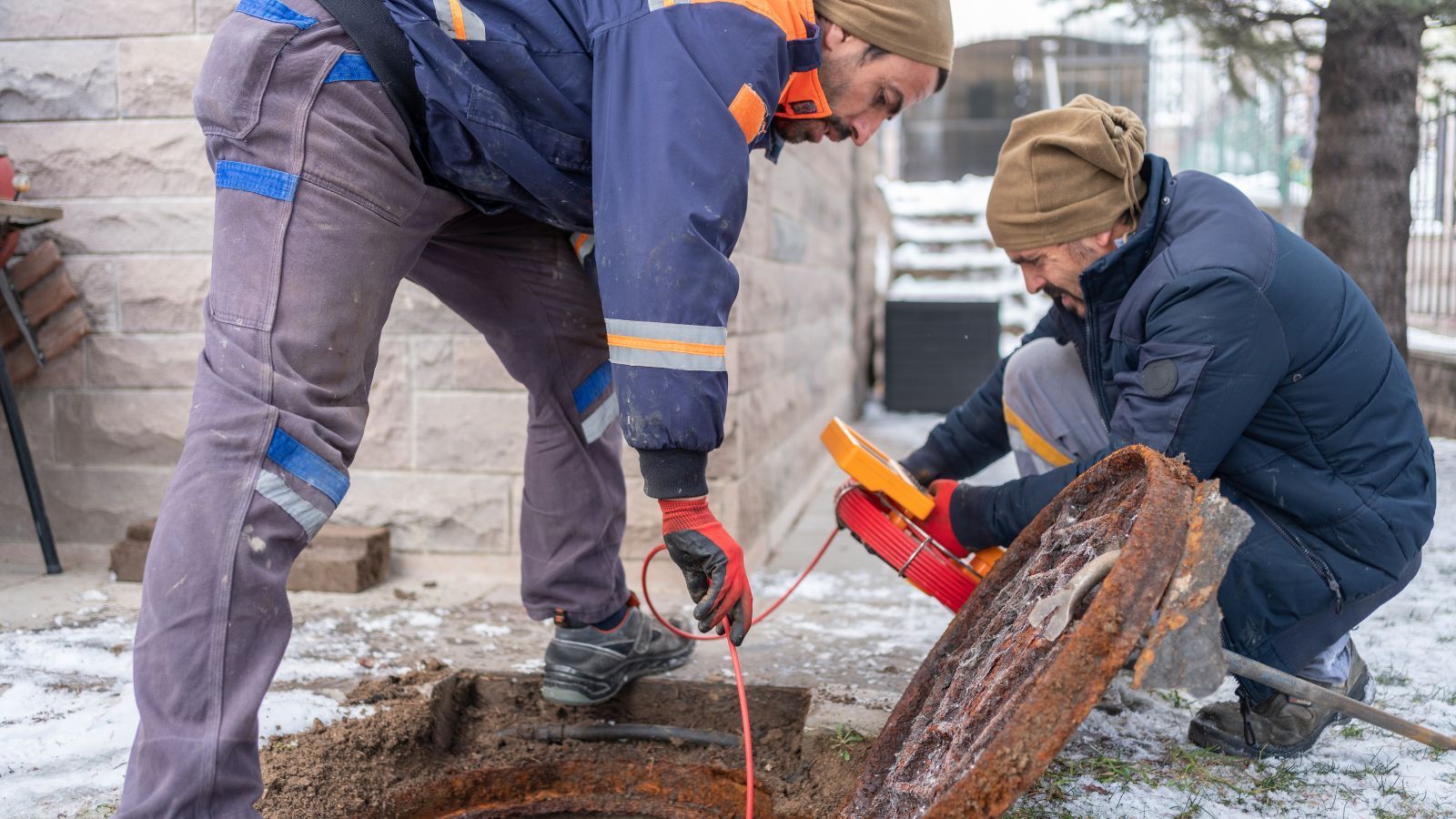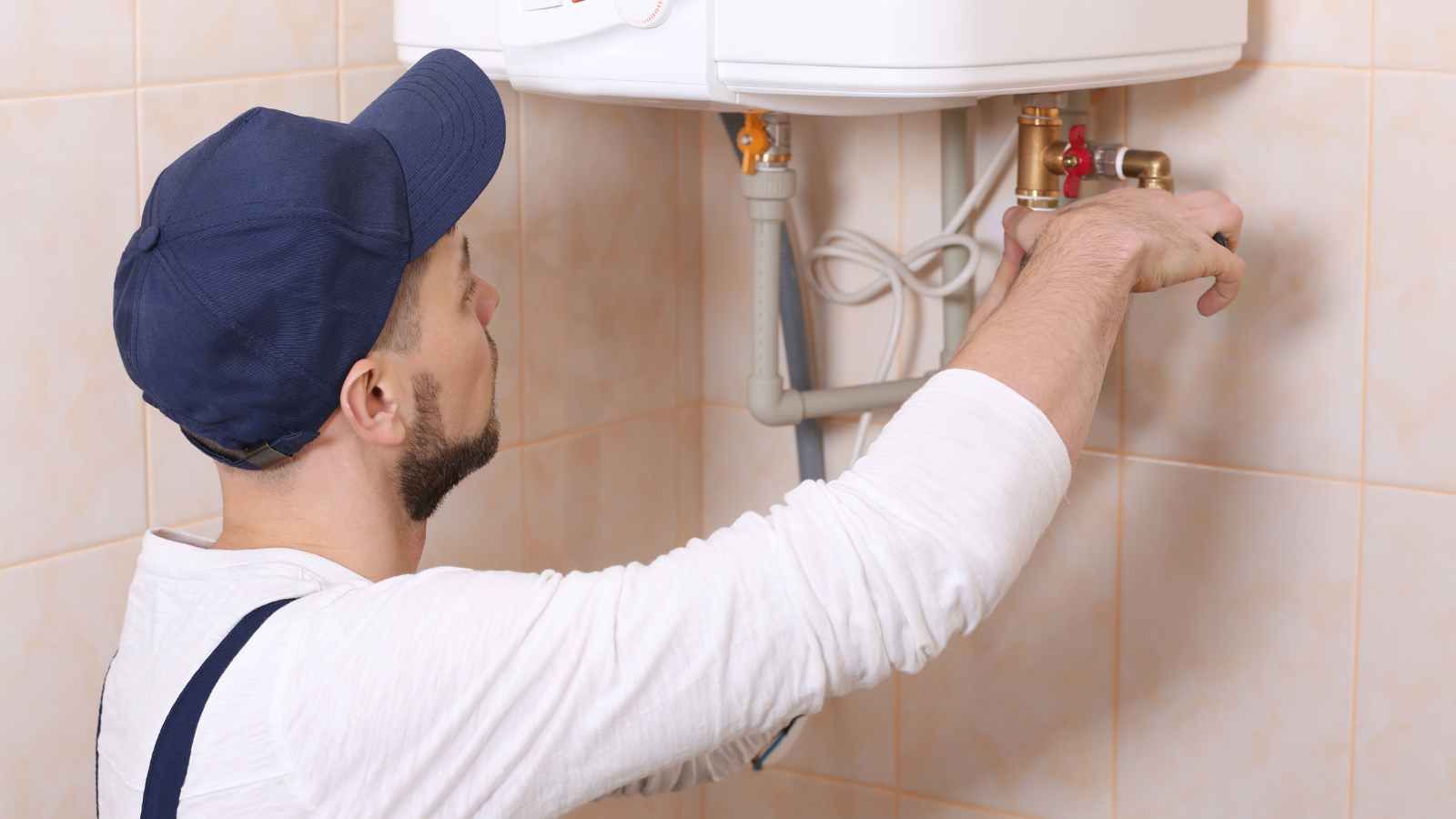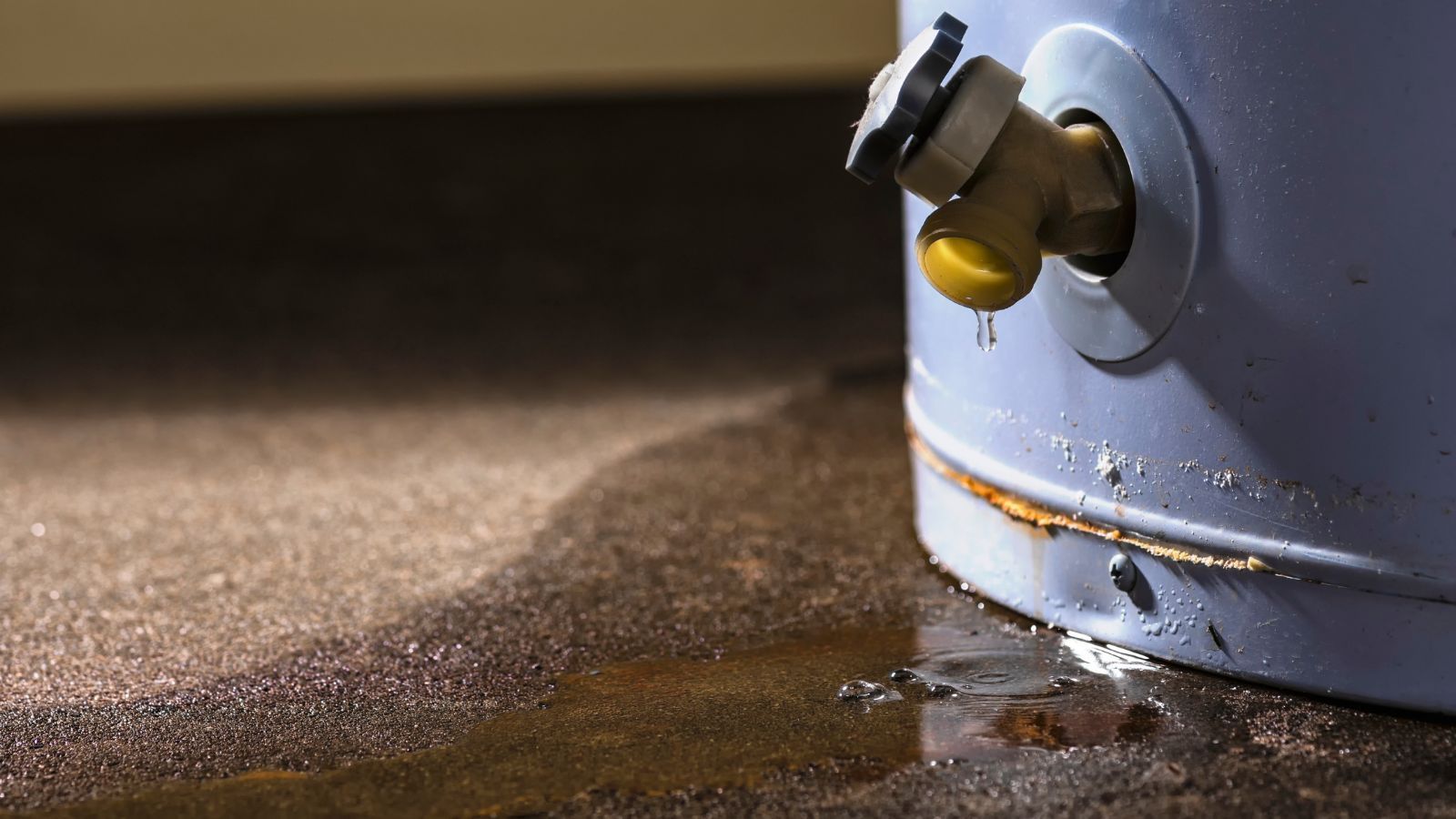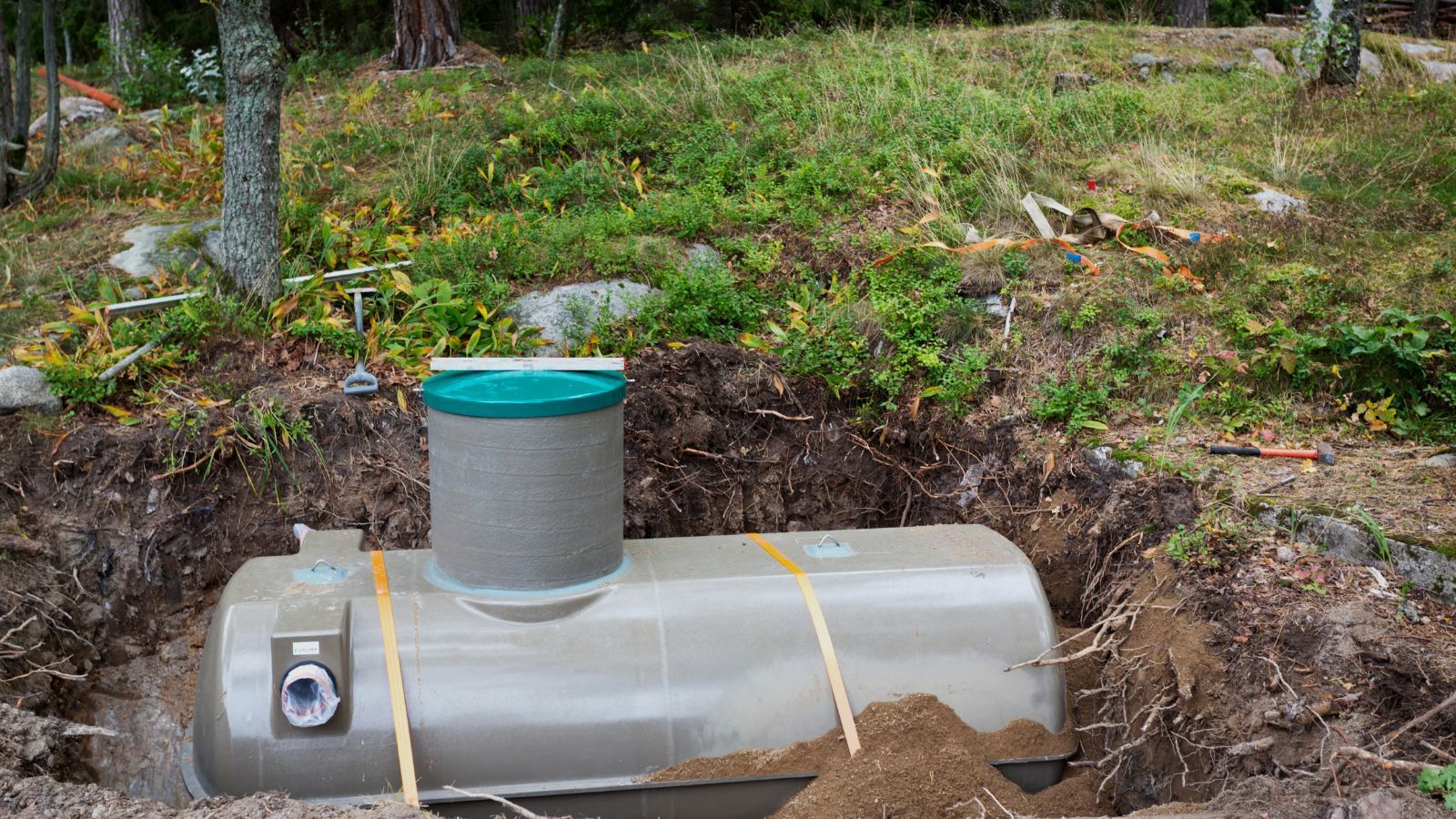Can a Clogged Drain Cause a Leak?
A clogged drain is more than an inconvenience, it can be a symptom of a much larger issue and a warning sign of a potential leak. Clogging can cause a leak as water backs up in your plumbing, creating a mess (and headache), turning a simple pipe blockage into a large clean-up and repair. In this article, we will discuss how a clogged pipe can turn into a leaking drain pipe and other plumbing damage, as well as what you can do about it.
In this blog post, we will cover:
- Common signs of a clogged drains and leaks
- Drains that are vulnerable to leaks from clogs
- Preventing leaks from clogged drains
- What to do if a clogged drain has caused a leak
How Clogged Drains Lead to Leaks
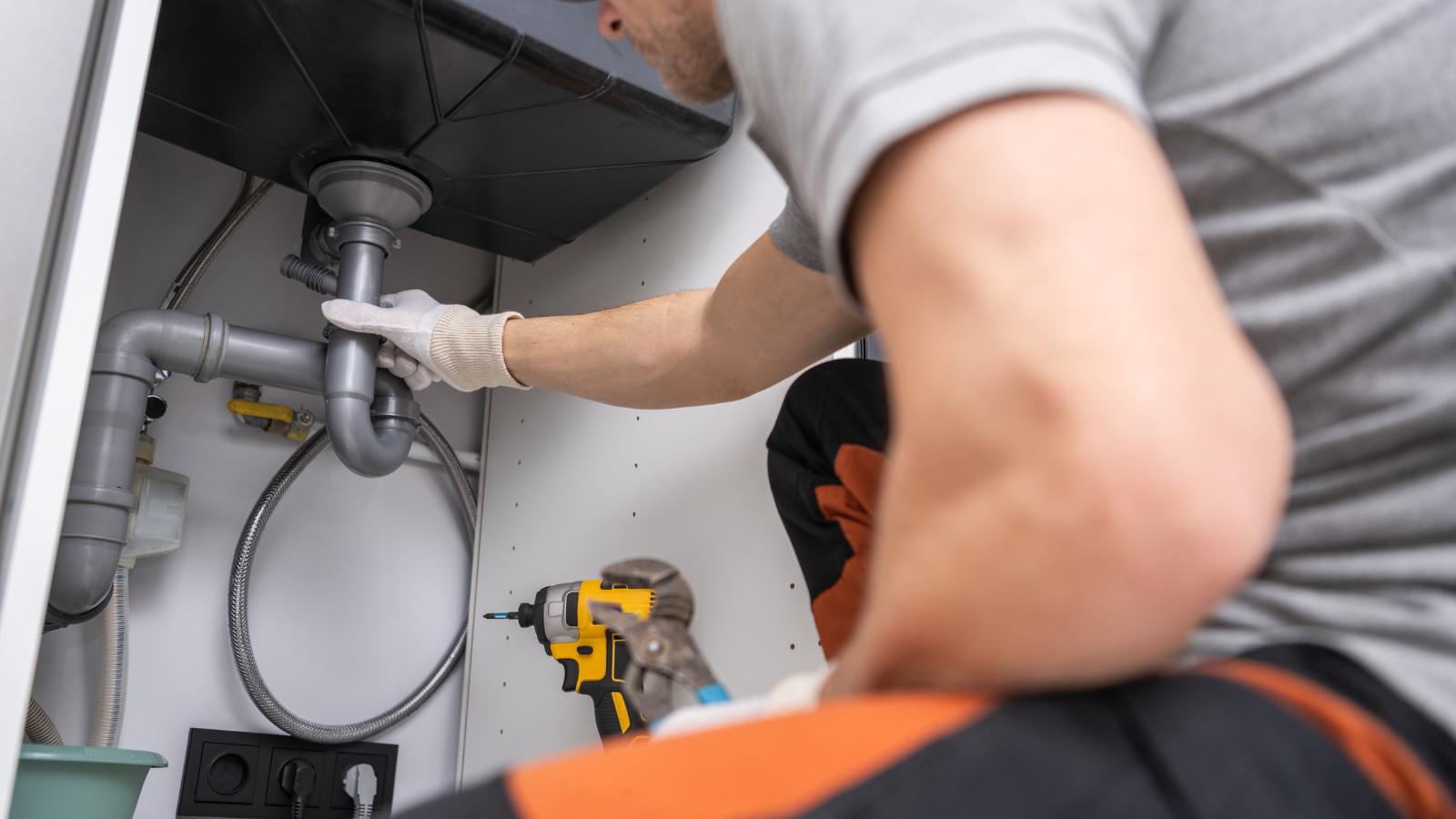
Water travels through your pipes like cars on a road. Just like an accident can create gridlock, a clogged drain can lead to a larger issue. Unlike traffic, where you might have an exit or side street to take an alternate route, water has nowhere to go but back up the line when a drain pipe is clogged. This pressure can lead to leaks, especially around weak spots, seals, or joints. Left unchecked, the
clogged pipes in a house or business can quickly escalate from a small drip to water-soaked walls or floors.
The Most Common Signs of a Clogged Drain and Potential Leaks
A pipe blockage can happen over time, but there are hints that you may have a clogged water line that could lead to a leaking drain pipe or other leaks in your system. Here are some key signs to look out for:
- Slow draining water: Water pooling around your ankles during your morning shower? Do you find yourself turning down your faucet's water flow because your sink seems to be taking forever to disappear down the drain? Not only does that leave more residue and soap scum to be scrubbed away later, but It's also a clear indicator of a pipe blockage.
- Gurgling sounds: Strange noises coming from your drains? That’s not a poltergeist; it’s water trying to navigate around a clogged water line.
- Foul odors: If you’ve ever walked by your kitchen sink and gotten a whiff of something foul, rotten or even gassy smelling, it may mean that grease, food bits, and more have been caught in a drainage block, leaving them to rot and add to the pipe blockage.
- Visible leaks: Finding a little water pooled in a place you don’t expect it, like under a sink or on the floor behind a toilet, can all indicate a leaking drain. If you’ve ever noticed a gathering of droplets below your bathtub, either on the ceiling or in the basement, it may indicate a bathtub drain pipe leaking.
Water always flows to the lowest elevation so while leaking drain pipes can happen around fixtures such as sinks and tubs, it can also lead to damage in unexpected places. If you don’t act quickly and
see signs of clogged pipes in your house or business, a hidden leak caused by a pipe blockage can cause a leak behind walls, making it difficult to notice the issue until serious damage has been done.
Types of Drains Most Vulnerable to Leaks from Clogs
Some types of drains are more prone to developing blockages and leaks than others. Here are the usual suspects:
- Kitchen sinks: Food scraps, grease, and other kitchen debris can easily clog these drains, building up to a sink drain pipe leaking.
- Bathtubs: Hair, soap scum, and other bath-time residues often cause bathtub drain pipe leaking situations.
- Toilets: If you’ve ever accidentally flushed a paper towel or had a toddler in your home, you know that flushing the wrong thing down your toilet can lead to water clogging and pipe blockage.
Over time, water treatment systems, changes to plumbing materials and methods etc. have changed, but that does mean that older plumbing systems or poorly installed systems are at a higher risk of a catastrophic leak caused by clogged water lines. These setups have more weak spots that can’t withstand the pressure of clogged pipes in house.
How to Prevent Leaks from Clogged Drains
Don’t risk a larger repair and costly renovation. Reduce the risk with these handy tips to avoid getting a drain pipe clogged.
Don’t:
- Put grease down a drain: While butter, grease, shortening etc. all pour easily in liquid form, as they cool and congeal, they begin to cling to the walls of your pipes. Even if the grease alone doesn’t cause a pipe blockage, they can become the glue to trap other debris, leading to a water line blockage and a possible sink drain pipe leaking not only water, but anything else that might have come down the pipe.
- Use your garbage disposal as a bottomless pit: Garbage disposals are a great modern convenience, but they can also create many problems if not used correctly. Use your garbage disposal for soft or cooked foods and scraps, but don’t overload it. Use cold water for 15 seconds before turning on the disposal and for at least 15 seconds after you turn it off to ensure everything is cleared away. Don’t try to use it for things such as bones, large pieces of food (Think about the size of a AA battery or smaller.), and avoid letting fat go down your garbage disposal to avoid finding a sink drain pipe leaking.
- Ignore signs of a water line blockage: If you notice any signs of a potential problem such as a slow draining sink or tub, act quickly to address the problem. The specialists at Moe’s Plumbing are happy to help you detect the drainage block and provide recommendations and an estimate to fix the issue.
Do:
- Clean your drains regularly: This can be as simple as running some baking soda and vinegar and running hot water through your drains every few weeks. (Pro tip? This also helps avoid any funky odors in your pipes!) For garbage disposals, you can use the baking soda and vinegar method or commercially available cleaning tablets. Be sure to follow the directions for correct use. This can help you flush out debris before it can cause a water line blockage.
- Use strainers: These simple devices come in a few different varieties to suit your needs and even décor! Whether you choose a tub shroom or a basin-style strainer in your kitchen sink, these can keep hair, food particles, and other solids out of your drains, reducing the chance of a drainage block.
These simple tips benefit your entire plumbing system, keeping your pipes running freely and avoiding a potentially costly repair and cleanup down the road.
What to Do If a Clogged Drain Has Caused a Leak?
Are you worried you might already have a leak caused by a water line blockage? Here’s what to do:
- Turn off the water supply: This is your first line of defense against further water damage. Your primary water valve is usually located in the basement.
- Locate the clog: You may already suspect where the clog is, but when in doubt, call the pros. A licensed plumber can find the source of the pipe blockage, remote the clog and repair the leak efficiently, preventing further damage.
Leaks start small and are good at hiding, when you notice or suspect a leak it’s important that you act quickly to clear up any drainage block, repair the leak and avoid further damage.
Act Fast to Prevent Damage from Clogged Drains and Leaks
We know we’ve said it before, but it’s true: a water line blockage or drainage block not only slows you down but it can lead to a leaking drain pipe or a pipe burst. Prevention is the best way to avoid a major plumbing disaster, so keep those drains clean, be mindful of what you’re putting down the drain or flushing away.
Sometimes, despite all of your best efforts, things happen. So if you find yourself wading through your shower or suspecting a clogged pipe, don’t hesitate to call in the experts. At
Moe’s Plumbing Repair, we’ve got you covered for pipe blockage repairs, drain clearing, and leak fixes. Reach out to us for fast, professional service serving down US-71 from Texarkana to
Ashdown .
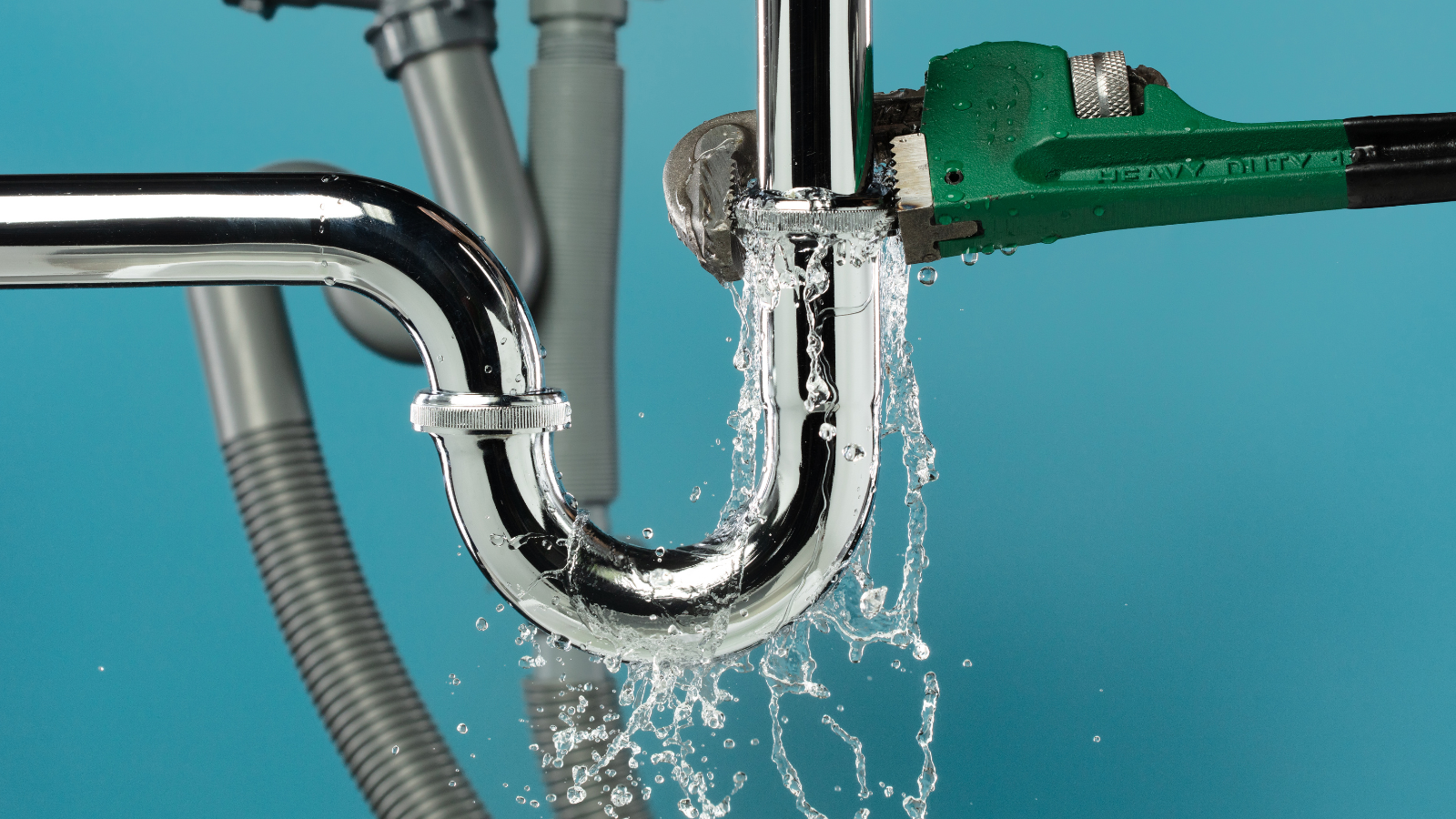

See What Our Customers Are Saying
